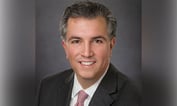In my first column in this series, I discussed the three elements of successful multi-generational planning: Financial Planning, which prepares and protects your assets during your lifetime; Estate Planning, which prepares your assets for your family; and Heritage Planning, which prepares your family to receive their inheritances.
The first two elements have historically received the lion’s share of attention from advisors. Many of us in the industry understood on an almost subconscious level that Financial Planning and Estate Planning were critical, but also not enough on their own. That’s certainly what my experience was like.
Money is a very useful tool; we work hard for it, and it enables us to have and do much that is necessary and good. When I founded my wealth management business almost 30 years ago, my practice was focused “on the money.” But as time progressed, I encountered, again and again, examples of money affecting those I loved, and those I worked with, in some very unexpected and unpleasant ways.
On a personal level, over the years the deaths of a close friend and business owner followed by my brother, father and my father-in-law really drove home the point that sometimes even airtight planning—planning that successfully passes on carefully-accrued capital to heirs in accordance with a deceased person’s wishes—isn’t enough to ensure that there will be harmony in a family. Those age-old maxims about how money can’t buy happiness—and money can’t buy love—are maxims for a reason.
After those experiences, I made it my mission to address this gap in planning. I developed my own process for helping people to (1) identify what they truly value most and (2) foster an environment in their family to ensure that those things would have a high likelihood of coming into fruition. Over time, I worked at continually honing that process as I worked with more families. As it turned out, I wasn’t the only person in America working on this problem.








 December 05, 2011 at 08:19 AM
December 05, 2011 at 08:19 AM










